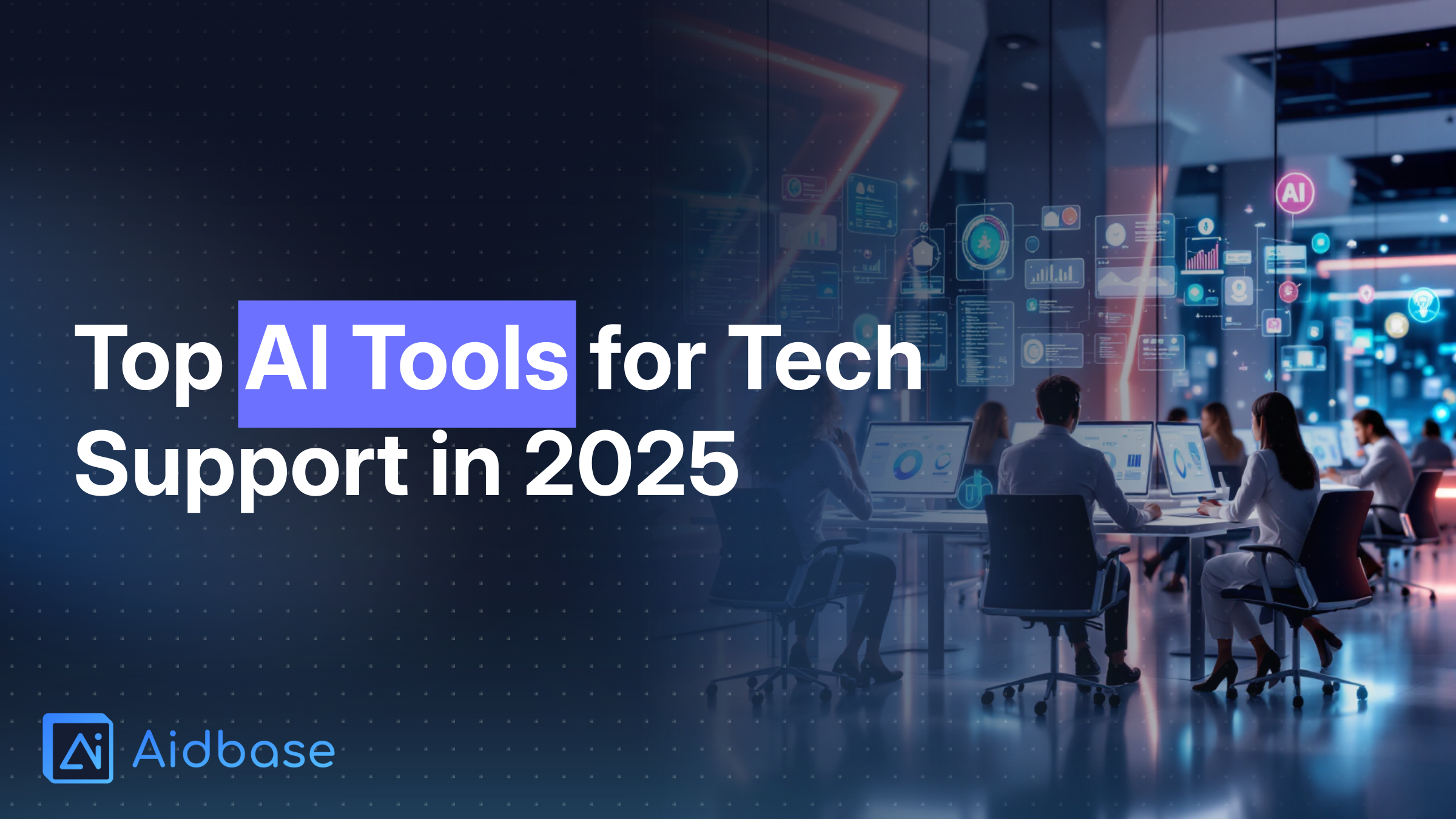In the evolving tech landscape, AI-driven tools are transforming technical ...

In today's rapidly evolving tech landscape, AI-driven tools have revolutionized the way technical support teams operate. By automating repetitive tasks and optimizing workflows, these tools empower support teams to offer faster, smarter, and more efficient service. In 2025, the integration of artificial intelligence in technical support is not just a convenience—it's a necessity, especially for industries in SaaS, DevOps, and IT-centric environments.
Artificial intelligence is transforming traditional support systems into streamlined, proactive, and adaptive ecosystems. Gone are the days of manual troubleshooting and slow ticket resolution processes. Modern AI tools can process vast amounts of data in real-time, interpret customer queries accurately, and even predict potential issues before they escalate. These systems learn continuously, making them smarter and more efficient over time. As technical support becomes increasingly complex, AI is bridging the gap between technology and exceptional customer service.
Choosing AI for technical support delivers several compelling benefits:
These benefits are crucial for industries where timely and accurate technical support is essential for maintaining business continuity and customer satisfaction.
When evaluating AI tools for technical support, several key criteria should be considered:
Below is a detailed, ranked list of nine AI tools designed to enhance technical support in 2025.
Moveworks is an AI-driven platform renowned for automating IT and employee support requests in real-time. Its robust design allows employees to submit queries through popular platforms like Slack or Microsoft Teams. The tool interprets and instantly resolves issues, significantly reducing response times and increasing overall satisfaction. For more insights on how Moveworks is transforming support, check out PerfectStack.ai’s review.
Zendesk AI Resolution Platform, introduced at Zendesk Relate 2025, represents the next generation of customer service tools. By leveraging advanced AI capabilities, the platform integrates seamlessly with existing systems to provide intelligent agents that continuously learn, reason, and adapt. This results in enhanced support quality and streamlined sales processes. Detailed updates and features were highlighted at TechRadar.
Freshdesk Freddy AI Assistant is tailored for optimizing support workflows. Freddy automates ticket routing, offers instant responses, and even compiles performance reporting. One of its standout features is automated ticket deflection, which reduces agent workloads and helps maintain high service levels. This tool is particularly beneficial for organizations looking to balance the efficiency of automation with the nuances of human touch. More details can be found through Beacon.li’s overview.
Aisera offers a comprehensive AI service management platform that employs conversational AI to automate IT support and service desk operations. By providing self-service options and an AI-powered virtual assistant, Aisera streamlines ticket classification and resolution across multiple channels. This ensures that common support requests are handled instantly, leaving human agents free to address more complex issues.
UiPath blends robotic process automation with artificial intelligence, empowering support teams to automate repetitive tasks. Its platform includes a visual process designer that makes it easy to create automation workflows, coupled with AI-powered document understanding that extracts key information from unstructured data. This combination enhances operational efficiency and reduces manual errors, making it a powerful tool for technical teams.
SupportZen is an emerging solution designed with modern support demands in mind. It focuses on proactive issue detection and automated resolution processes. Key features include predictive analytics and natural language processing capabilities that help quickly identify and resolve user issues before they escalate. Its user-friendly interface makes it easy for teams to integrate and manage their support operations efficiently.
AutoAssist excels in automating the handling of routine support queries. Its machine learning algorithms deduce the most common issues and provide real-time resolutions, reducing the dependency on human intervention. Beyond simple automation, AutoAssist offers dynamic escalation paths ensuring that more complex problems are promptly forwarded to a human agent for resolution.
ServiceBot is a versatile AI assistant designed to integrate with diverse IT environments. It provides automated support across multiple channels, utilizing deep learning to handle complex issue resolutions. Additionally, ServiceBot features robust analytics capabilities, enabling decision-makers to identify frequent pain points and optimize support workflows on a granular level.
TechSense rounds out our list with its focus on seamless integration and AI-driven diagnostics. It facilitates end-to-end support, automating both common and infrequent issues while providing detailed on-demand analytics. The platform's adaptability and comprehensive reporting make it a strong candidate for businesses aiming to streamline their technical operations.
Amid these powerful tools, platforms like Aidbase play a pivotal role in bridging the gap between AI systems and human decision-making. Aidbase integrates seamlessly with existing support workflows and harnesses AI to deliver actionable insights. This enables support teams to anticipate issues and maintain high service levels, balancing automation with the essential human touch—a critical component in achieving both efficiency and customer satisfaction.
Across industries, companies implementing AI-driven technical support tools have witnessed remarkable improvements. For example:
These success stories illustrate that the right mix of AI tools can transform technical support from a reactive service into a proactive, efficient operation.
Selecting the optimal AI tool for technical support requires a thorough evaluation of your organization's unique needs. Consider factors such as integration capabilities, scalability, automation features, and cost-effectiveness. Whether you opt for a well-established solution like Moveworks or explore newer options like TechSense, the key is to ensure that the tool complements your existing workflows while enhancing overall efficiency.
As AI continues to evolve, so too will the capabilities of these systems. Staying informed about the latest innovations—and integrating them thoughtfully—will be instrumental in maintaining robust and responsive technical support operations. By leveraging the power of AI, technical support teams are better positioned to not only meet but exceed customer expectations in an increasingly digital world.